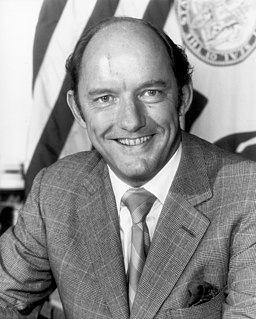A Quote by Amity Shlaes
Today many politicians suggest that where the federal government does not act, there must be anarchy. That view is odd, blinkering out the work of state and towns, which until recently did much of our charitable and cultural work. That view also blinkers out the role of mutual societies and churches.
Related Quotes
The true forms of government, therefore, are those in which the one, or the few, or the many, govern with a view to the common interest; but governments which rule with a view to the private interest, whether of the one or of the few, or of the many, are perversions. For the members of a state, if they are truly citizens, ought to participate in its advantages.
Yet, here we are, long and difficult years into that conflict," ... "we still have not created the state we promised them. On the contrary, our costly and valiant efforts have produced an outcome our government did not predict or intend-a failed state spinning out of control into anarchy and civil war.
We must realize that the Reformation world view leads in the direction of government freedom. But the humanist world view with inevitable certainty leads in the direction of statism. This is so because humanists, having no god, must put something at the center, and it is inevitably society, government, or the state.
The cult of the omnipotent state has millions of followers in the united States. Americans of today view their government in the same way as Christians view their God; they worship and adore the state and they render their lives and fortunes to it. Statists believe that their lives - their very being - are a privilege that the state has given to them. They believe that everything they do is - and should be - dependent on the consent of the government. Thus, statists support such devices as income taxation, licensing laws, regulations, passports, trade restrictions, and the like.
Today government touches everything in America and harms almost everything it touches. Federal, state, and local governments together spend 42 out of every 100 dollars we earn. Those who do the taxing and spending have long since ceased to work for the people as a whole. Rather, they work for themselves and for their clients-the education industry, the welfare culture, public-employee unions, etc.
[Before the Civil Rights Act of 1964], many governments in southern states forced people to segregate by race. Civil rights advocates fought to repeal these state laws, but failed. So they appealed to the federal government, which responded with the Civil Rights Act of 1964. But this federal law didn't simply repeal state laws compelling segregation. It also prohibited voluntary segregation. What had been mandatory became forbidden. Neither before nor after the Civil Rights Act were people free to make their own decisions about who they associated with.
But I must add that the U.S. government must not, as by this order, undertake to run the churches. When an individual, in a church or out of it, becomes dangerous to the public interest, he must be checked; but let the churches, as such take care of themselves. It will not do for the U.S. to appoint Trustees, Supervisors, or other agents for the churches.



































